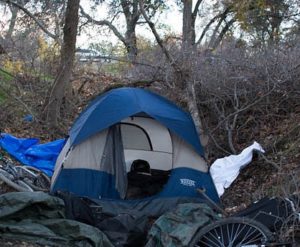 The Sacramento County Board of Supervisors and City Council engaged with constituents and each other last week to discuss how best to reduce the human and social toll of homelessness in our community.
The Sacramento County Board of Supervisors and City Council engaged with constituents and each other last week to discuss how best to reduce the human and social toll of homelessness in our community.
While the meeting – the first open session between city and county elected officials in 23 years – was billed as a showdown over complicated housing vouchers, I was grateful that we focused on much more.
As stated by supervisors, council members and numerous members of the public, the county board and the city council must address all gaps and opportunities in our continuum of care for those who are homeless; i.e., deliberate measures to reduce homelessness involving the city, county, housing authorities, federal government and our local network of nonprofit service providers and philanthropic agencies.
At one end of the continuum are “points of entry” welcoming people facing extraordinarily harsh circumstances, such as living outdoors while suffering addiction, mental illness, hunger, sexual exploitation, or all of the above and more.
Many speakers at the meeting expressed a desperate need to fortify points of entry by adding “low-barrier triage” capacity in the form of time-limited shelter with access to intensive services, designed to accommodate pets, partners and possessions, all of it to promote personal stability.
I agree wholeheartedly.
It’s why I have been working with our executive staff for months to bring to the board of supervisors a proposal for a county-sponsored, low-barrier homeless triage center(s) that could accommodate those most in need, especially shelterless individuals who feel their only option is to occupy the American River Parkway, a county asset that is continually stressed by illegal camping and suspicious wildfire activity.
This first step in the continuum is absolutely critical because the efficacy of all other subsequent interventions – including the utility of housing vouchers – depends on individuals’ cognition and their willingness to exercise self-help at some level. And as I acknowledged during the meeting, the success of low-barrier triage will not be gauged by an ability to warehouse folks, but instead by how well stable people move from triage through to other continuum steps.
One of those successive steps is transitional housing, an essential model that unfortunately has fallen out of favor with the federal government in recent years. Transitional housing provides longer stay opportunities to individuals and families compared to emergency sheltering, but functions like a necessary bridge between triage and shelters, and being permanently sheltered and self-sufficient.
Hallmarks of the transitional housing model have included participants’ strong commitment to sobriety and a willingness to pursue self-improvement, like completing various levels of schooling, restoring child custody and clearing outstanding warrants.
In Sacramento County we’ve had some great transitional housing successes that have helped thousands of formerly homeless individuals and families, including those who’ve graduated from Serna Village in McClellan Business Park and others who’ve accomplished the same from Mather Community Campus in Rancho Cordova.
Finally, as we move forward and jointly develop new tools to reduce homelessness in the city and county, it is incumbent on all of us to continually focus on the entire continuum of care, and not just one element of it.
We should not ignore either by inaction or poor execution those adjacent elements in the continuum that together separate the extremes, and that serve a distinct purpose whether it’s low-barrier triage, transitional housing or housing choice vouchers. All of it must be on the table for our community to expect change from an unacceptable status quo.

